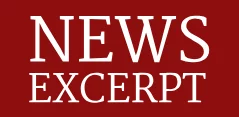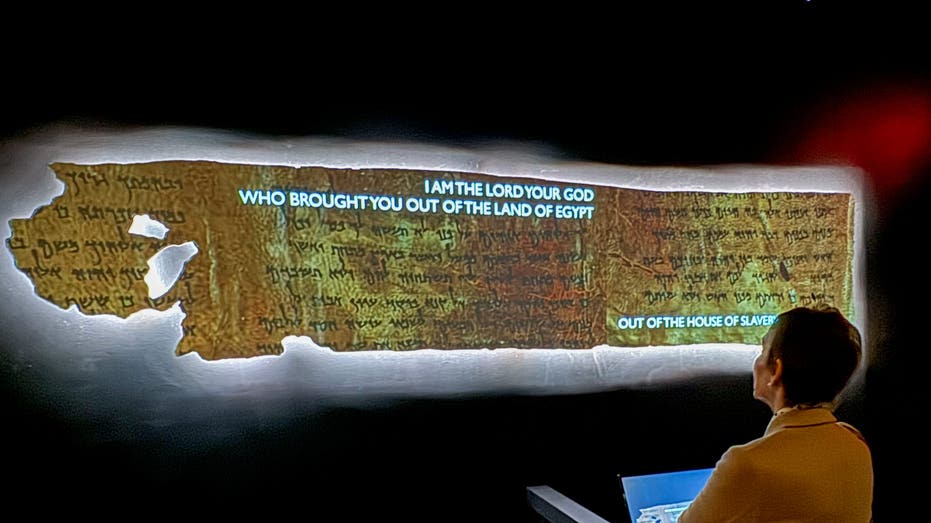In an exciting announcement, the Ronald Reagan Presidential Library has revealed that it will host a remarkable exhibition featuring a fragment of the ancient Ten Commandments. This manuscript, estimated to be around 2,000 years old, provides a unique glimpse into the history and cultural significance of one of the most influential legal codes in human civilization.
The exhibition is set to attract scholars, students, and the general public alike, as it seeks to shed light on the origin and legacy of the biblical commandments. The fragment itself is a part of a larger collection of Dead Sea Scrolls, which were discovered in the mid-20th century near the shores of the Dead Sea. These scrolls have provided invaluable insights into the religious practices and beliefs of ancient Jewish communities.
The Ten Commandments are a set of ethical guidelines that have shaped religious and moral understanding for millennia. They consist of fundamental principles that govern the relationship between individuals and their communities, as well as the relationship between humanity and the divine. Traditionally attributed to Moses, these commandments have played a crucial role in both Judaism and Christianity, influencing countless legal systems and ethical frameworks throughout history.
The fragment on display at the Reagan Library is part of the library’s commitment to preserving and promoting American history and culture. By showcasing such a significant historical artifact, the library aims to engage visitors with the profound themes of faith, morality, and justice that the Ten Commandments represent.
The Ronald Reagan Presidential Library, located in Simi Valley, California, is known not only for its connection to the 40th President of the United States but also for its role in housing important cultural artifacts. The library attracts millions of visitors each year, creating a vibrant space for education and reflection. This latest exhibition adds another layer of depth to the library’s offerings, connecting contemporary audiences with ancient traditions.
Experts in biblical studies are eager to contribute to the dialogue surrounding the fragment. They note that while the Ten Commandments have been referenced throughout history, the actual historical and textual evolution of these ethical guidelines raises intriguing questions about their interpretation and application across different cultures and epochs. This display provides a rare opportunity for both scholarly exploration and public discourse.
The exhibition will include additional educational materials to help visitors understand the historical context of the Ten Commandments. There will be guided tours, lectures, and workshops led by prominent historians and theologians who will delve into topics such as the significance of the commandments in ancient Jewish law, their moral imperatives, and their lasting impact on Western civilization. The library aims to cultivate a space where people can not only view the fragment but also engage in meaningful discussions about its implications in today’s society.
In addition to the fragment of the Ten Commandments, the library has planned various complementary exhibits highlighting the intersection of faith and governance throughout American history. This includes discussions surrounding the Founding Fathers’ intentions regarding the influence of religious beliefs on the formation of American law. By drawing these connections, the exhibition aims to illustrate how the principles embodied in the Ten Commandments have permeated the fabric of American society.
The anticipation for this exhibition is palpable, with many members of the community expressing enthusiasm for the opportunity to witness such an ancient artifact firsthand. Local religious leaders have also expressed their support, emphasizing the importance of understanding the historical roots of moral teachings. They hope that the fragment will spark a renewed interest in discussions regarding ethics and values in a contemporary context.
Furthermore, educators are excited about the educational potential this exhibition holds for students. By integrating this experience into classroom discussions, teachers will be able to highlight the intersections between ancient texts and modern ethical dilemmas. The exhibition promises to serve as a powerful tool for teaching critical thinking, historical analysis, and moral reasoning.
The significance of the fragment reaches beyond its mere age; it serves as a testament to the enduring power of ideas and beliefs that have shaped human conduct for centuries. As visitors come to view this extraordinary piece of history, they are likely to reflect on the broader implications of the principles enshrined in the Ten Commandments. In a world grappling with complex moral challenges, the exhibition is poised to ignite essential conversations about right and wrong, justice, and community responsibility.
The library will also implement a range of interactive elements to enhance the visitor experience. Digital displays will allow guests to delve deeper into the historical evidence surrounding the Ten Commandments, while hands-on activities will encourage reflection on what these ancient principles mean in various cultural contexts. Through engagement, visitors will be invited to contemplate the relevance of these commandments in their own lives and communities.
Cultural figures and scholars alike have voiced their enthusiasm for the exhibition, highlighting its capacity to bridge gaps between faith traditions, cultural narratives, and historical accounts. As attendees gather to experience this connection to the past, they are encouraged to explore their own relationships to the themes presented in the fragment and to engage thoughtfully with their implications today.
As preparations for the exhibition continue, the Ronald Reagan Presidential Library remains committed to providing an enriching experience to all who enter its doors. The fragment of the Ten Commandments stands as a revered artifact, transcending time and inviting contemplation on the profound role of moral frameworks in shaping human behavior and society.
Visitors hoping to experience this once-in-a-lifetime opportunity will have the chance to view the Ten Commandments fragment alongside a host of educational programs and discussions related to the ethical teachings embedded within this sacred text. The library’s combination of historical scholarship and contemporary relevance is set to captivate audiences of all ages, creating a space for learning, dialogue, and reflection on the enduring quest for moral clarity and justice.
As the opening date approaches, excitement continues to build within the community and beyond. The Ten Commandments fragment serves not only as a relic of the past but also as a catalyst for ongoing conversations about the values that govern human interaction. By bringing this significant artifact to the Reagan Library, the organizers aim to inspire a new generation to engage with the powerful lessons that have stood the test of time.
In conclusion, the exhibition of the fragment of the ancient Ten Commandments promises to be a significant event that resonates with not just local audiences, but with those from around the nation and the world. As the dialogue surrounding morality and ethics becomes increasingly relevant in contemporary society, this exhibition invites individuals to reflect on their own values and the shared principles that unite humanity across cultures and eras.
































